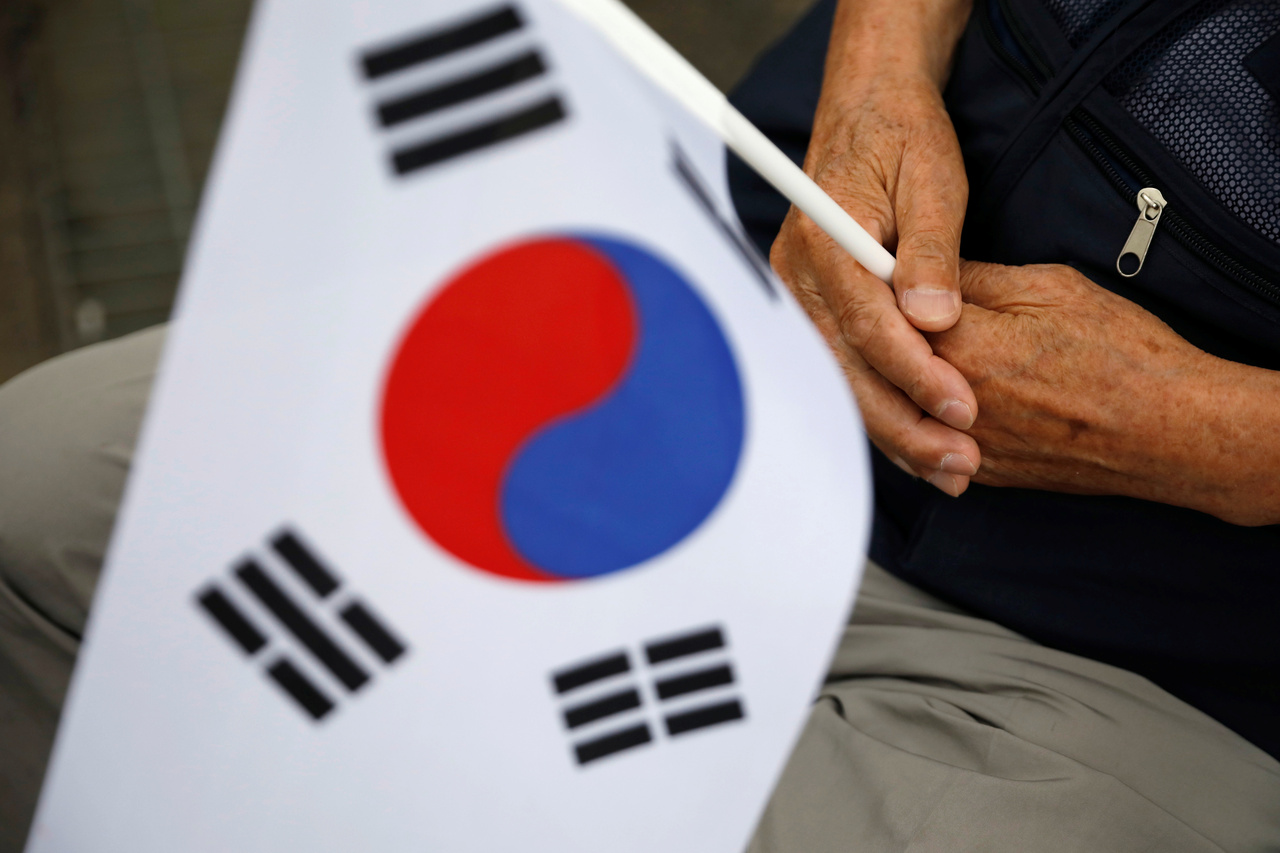Editorial Notes
Seoul should be more active in concluding defence negotiations with Washington: Korea Herald
In its editorial, the paper says it cannot be ruled out that US President Donald Trump will move to downsize US forces deployed in Seoul if the latter continues to reject what he sees as a fair cost-sharing deal.
Sign up now: Get insights on Asia's fast-moving developments

South Korea's defence spending also accounts for more than 2 per cent of its gross domestic product.
PHOTO: REUTERS
SEOUL (THE KOREA HERALD/ASIA NEWS NETWORK) - The possibility of a reduction in the number of US troops stationed here is resurfacing amid a prolonged impasse in defence cost-sharing negotiations between Seoul and Washington.
The US Defence Department reportedly presented the White House in March with options for cutting American troop levels in South Korea and other countries.
After the news was revealed Friday (July 17), a Pentagon official said the US "routinely" reviews its global force posture.
But the latest review is said to have been requested by the White House last fall, with US President Donald Trump eager to bring home American troops deployed abroad unless host nations accept a sharp increase in their share of the cost.
Concerns over a possible drawdown of the 28,500-strong US Forces Korea (USFK) have been continuously raised as cost-sharing talks between Seoul and Washington remain deadlocked.
In June, Mr Trump affirmed his decision to slash the number of American troops stationed in Germany by 9,500 from the current 34,500, prompting worries that he might take a similar action toward South Korea.
The 2020 National Defence Authorisation Act passed by the US Congress calls for, among other things, maintaining the number of US soldiers assigned here at the current level. But it permits the downsizing of USFK if the measure suits American national interests.
There may be differences in the function and roles of US forces deployed in Germany and South Korea.
The mission of the American troops in Germany is seen as carrying less strategic weight than that of USFK, tasked with coping with the mounting nuclear and missile threats from North Korea.
South Korea's defence spending also accounts for more than 2 per cent of its gross domestic product, the percentage that the Trump administration is demanding from Germany and other European members of the North Atlantic Treaty Organisation.
Germany, which hosts more US troops than any other European state, plans to gradually increase the proportion, which remained at 1.36 per cent last year, to 2 per cent by 2031.
Still, it cannot be ruled out that Mr Trump will move to downsize US forces deployed here if Seoul continues to reject what he sees as a fair cost-sharing deal.
He might belittle the strategic importance experts attach to the upkeep of USFK and argue that saving the cost of helping defend an ally unwilling to shoulder its due burden would not harm US interests.
South Korea and the US have failed to settle differences in the seven rounds of negotiations since September on renewing the cost-sharing accord, known as the Special Measures Agreement (SMA).
The US has asked South Korea to pay US$1.3 billion ($1.8 billion) this year, a 50 per cent rise from the amount the latter paid under the 2019 SMA, which expired in December. Seoul, however, remains firm that its best offer is a 13.6 per cent increase.
Reducing the US military presence in South Korea would be a grave misstep that could send the wrong signal to Pyongyang and destabilise the security situation on the peninsula.
It would hurt US security interests to allow China and Russia to increase their clout in the region while keeping close ties with a nuclear-armed North Korea.
What is worrying is that no one is sure Mr Trump will place rational strategic considerations ahead of ill-conceived political calculations as he is running for reelection in November.
Seoul should now be more active in concluding defence cost-sharing negotiations with Washington to lessen uncertainties in the alliance.
It may need to accept the measured expansion of the scope covered by the SMA to pay for the cost of the rotational deployment of an infantry brigade from the US.
That concession could be made on the condition that the cost-sharing deal be renewed on a multiple-year basis instead of being negotiated annually.
South Korean President Moon Jae-in and his aides also need to pay heed to the criticism that their preoccupation with inter-Korean reconciliation, even at the risk of straining ties with Washington, helps prompt talk of a possible US troop pullout.
Recent remarks by some presidential advisers and ruling party lawmakers downplayed the role of the American troops here and took issue with what they saw as Washington's lack of support for Seoul's efforts to enhance cross-border cooperation.
It should be noted that a weakened, though not unravelled, alliance with the US would make it harder to ensure the North's denuclearisation and achieve true and sustainable reconciliation between the two Koreas.
The Korea Herald is a member of The Straits Times media partner Asia News Network, an alliance of 24 news media organisations.


